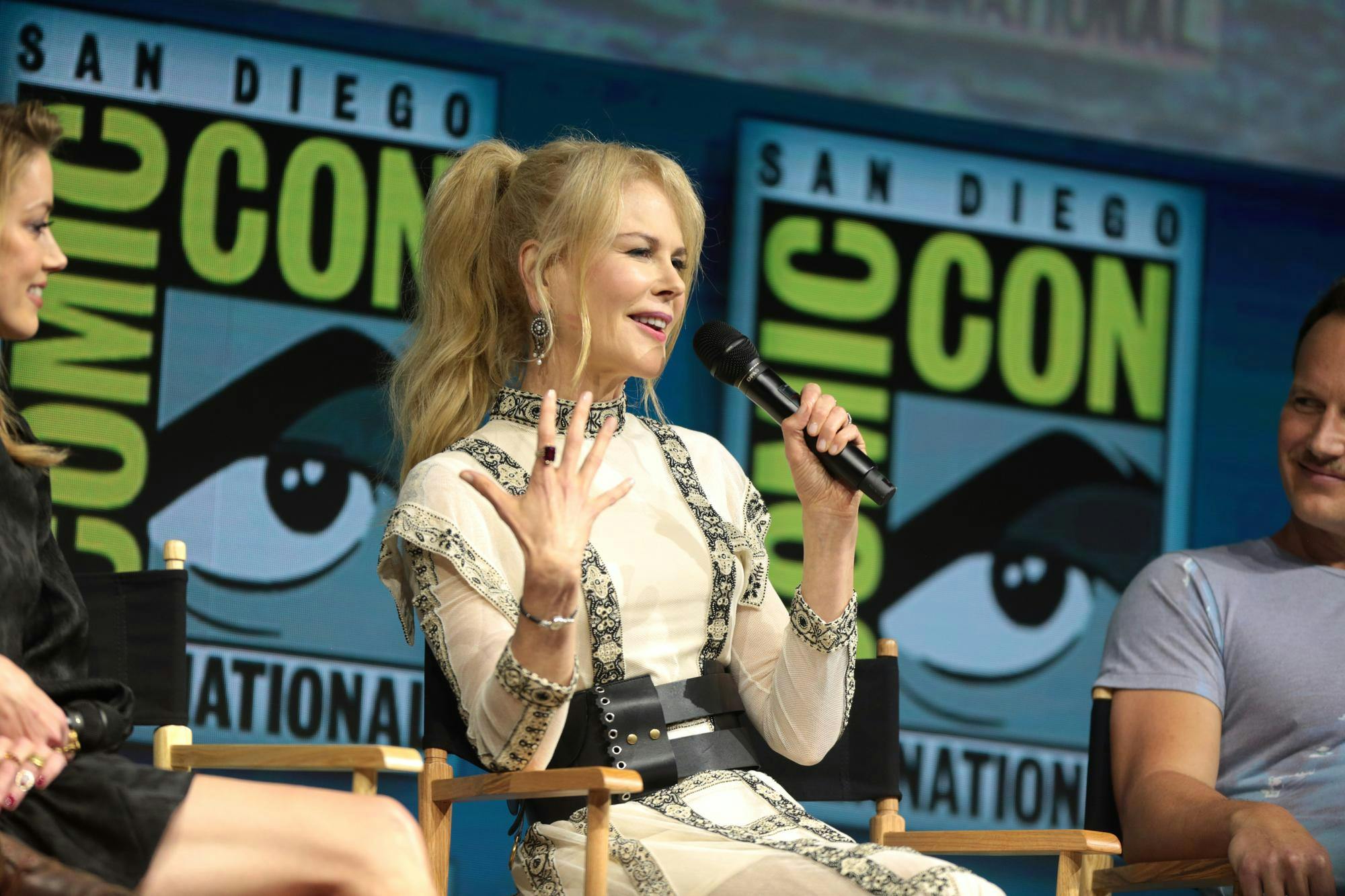Warning: This review contains spoilers for the miniseries “Expats.”
The first episode of the miniseries “Expats,” directed by Lulu Wang and based on Janice Y. K. Lee’s novel “The Expatriates,” premiered on Jan. 26. Following an array of expatriates in Hong Kong, the show focuses on the case of a missing child and how it brings the lives of three women together into a tangle of trauma, tears and treachery.
The show begins with a monologue by an unknown character, who waxes eloquent on the nature of perpetrators. The audience is introduced to Margaret Woo (Nicole Kidman), a troubled mother of three rather troublesome children and wife to Clarke Woo (Brian Tee). She is still coming to terms with the disappearance of her youngest child, Gus. While Clarke seems to have found solace in religion, Margaret continues to struggle in the aftermath of her son’s disappearance, despite the pleas of those around her. Margaret shares a fractured relationship with now ex-close friend Hillary Starr (Sarayu Blue), who herself is dealing with revelations about her husband David (Jack Huston) which came to light in the wake of Gus’ disappearance. Rounding out this triangle is Mercy (Ji-young Yoo), the initial narrator and a wayward Columbia graduate who is trying to find acceptance in a strange new place. The audience sees Mercy come into Margaret’s life after a chance encounter at a boat party. She is eventually revealed as the culprit during the flashback second episode when she loses Gus in a crowded marketplace on a trial run as the Woo’s nanny. The rest of the series follows the three women as they navigate the aftermath of the incident a year later.
Wang expertly conveys the sense of loneliness that comes with life in a buzzing metropolis. From Margaret’s repeated efforts to overcome the detachment she feels from her bubble of “domestic bliss,” to Hillary’s failure to find assurance and sympathy in the arms of her husband and to Mercy’s negotiations amidst her wealthier, more privileged peers, the show poignantly ties together each character’s narratives through the theme of isolation while simultaneously foregrounding the unique elements of each plotline. Cinematographer Anna Franquesa-Solano provides varied glimpses into life in Hong Kong. She emphasizes themes such as solitude and class divisions through stirring shots of crowded marketplaces interspersed with quirky vignettes of domestic help. Similarly, Alex Weston’s score provides evocative melodies that complement the characters’ emotions as they run sky-high.
It is perhaps the sequencing of the episodes that holds the show back in terms of its pacing and flow. Rather than conforming to typical tropes of including the flashback at the beginning or end of the season or providing the audience with a series of consistent tidbits, the series opens on the lives of the expats a year after the incident before diving into a flashback in its second episode. The interruption caused by this flashback makes the story feel somewhat scattered, unlike the more natural shifts in the narratives in each episode. While this leaves the audience fully aware of what has happened, it also prevents them from forming enough of a connection with the characters to grasp the stakes fully and feel truly sympathetic, beyond the superficial level that one would presumably feel for any distraught individual.
Kidman deftly portrays a shattered mother, bringing forth the abject guilt and devastation of losing a child that is compounded by the uncertainty of his fate. As she transitions from a discontented parent into a spiral of misery and mental gymnastics — especially when it comes to investigating suspects and even her dead neighbor is not safe from accusations — one is caught between pity and outrage as she damages her relationships with those still present in her life for the sake of the one who is not. However, it is Sarayu Blue who really shines as Hillary Starr; she has lost not just the emotional support of her husband but also her friend. As she contends with her husband’s somewhat irrational expectations that clash with her own ruthlessly pragmatic outlook — heavily contributing to the disintegration of their relationship — Blue’s eyes tell stories of emotional exhaustion mixed with mostly unwavering resolve. She consistently commands the screen in both her solo scenes and her emotionally charged interactions with other characters which form some of the highlights of the show. Yoo impressively holds her own as an out-of-place graduate, supplementing her artificial affability with a subtle discomfort. Later in the series, she perfectly portrays an unlikely culprit, as her guilt clouds her judgment and worsens her sense of social isolation. Brian Tee and Jack Huston both bring able performances to the table as the husbands of Margaret and Hillary, respectively, with Huston particularly standing out in his scenes with Blue.
So, want to feel better about your relationship? Looking for a family more dramatic than yours? Studying abroad in Hong Kong and want to know what not to do? Watch “Expats.”
The next episode of “Expats” comes out Friday on Amazon Prime.






